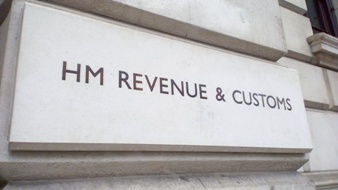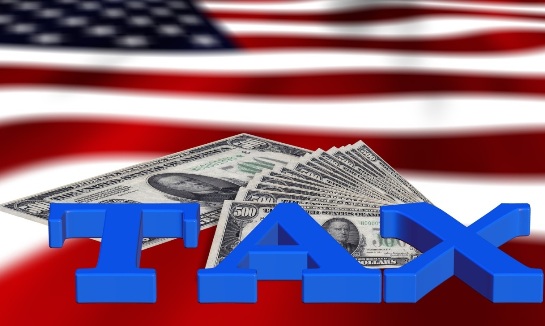Background
The EU code of conduct Group (“the Code Group”) has assessed the tax policies of BVI in 2017 and opine that BVI should be included in a list of jurisdictions which were required to address the Code Group’s concerns about “economic substance”. The government of the BVI was therefore working closely with the Code Group to ensure such concerns are adequately addressed.
As a result of this engagement, the Act has been enacted and come into force on 1 January 2019.
Applicability
This requirement covers only companies and partnerships resident in BVI. Resident company’s definition includes companies that have been incorporated in BVI in accordance with BVI Business Companies Act 2004 and foreign companies that carry on business in the territory of BVI.
It is important that economic substance requirement is applicable to companies that carry on the following relevant activities:
Banking business. The core activities of such business are:
- raising funds, managing risk including credit, currency and interest risk;
- taking hedging positions;
- providing loans, credit or other financial services to customers;
- managing regulatory capital;
- preparing regulatory reports and returns.
Insurance business. It must be carried out in a form of:
- predicting and calculating risk;
- insuring or re-insuring against risk;
- providing insurance business services to clients.
Fund management business. The core activities of this business are:
- taking decisions on the holding and selling of investments;
- calculating risks and reserves;
- taking decisions on currency or interest fluctuations and hedging positions;
- preparing relevant regulatory or other reports for government authorities and investors.
Finance or leasing business, represented by the following core activities:
- agreeing funding terms;
- identifying and acquiring assets to be leased (in the case of leasing);
- setting the terms and duration of any financing or leasing;
- monitoring and revising any agreements;
- managing any risks.
Headquarters business that includes:
- taking relevant management decisions;
- incurring expenditures on behalf of affiliates;
- coordinating group activities.
Shipping business. It includes the following core activities:
- managing the crew (including hiring, paying and overseeing crewmembers);
- hauling and maintaining ships;
- overseeing and tracking deliveries;
- determining what goods to order and when to deliver them;
- organizing and overseeing voyages.
- Holding activity. It is deemed to be holding of equity participations in other entities and earning of dividends and capital gains as the only activity of legal entity.
Intellectual property business, including:
- where the business concerns intellectual property assets such as patents, research and development;
- where the business concerns non-trade intangible assets such as brand, trademark and customer data, marketing, branding and distribution.
Distribution and service center business, the core activities of which are:
- transporting and storing goods;
- managing stocks;
- taking orders;
- providing consulting or other administrative services.
In accordance with the Act the economic substance is defined as:
- Management and control from the territory of BVI. Generally, it means that director of a company must be a person resident in BVI, or board of directors (as well as other management body) must be composed of persons resident in BVI.
For purposes of carrying on relevant activities mentioned above, the company must:
- have an adequate number of suitably qualified employees in relation to that activity who are physically present in BVI (whether or not employed by the relevant legal entity or by another entity and whether on temporary or long-term contracts);
- incur adequate expenditure in BVI;
- have physical offices or premises as may be appropriate for the core activities;
- where the relevant activity is intellectual property business and requires the use of specific equipment, have such equipment located in BVI.
- Carrying on only that core activities that are prescribed by the Act.
In the case of an income-generating activity for a relevant legal entity is being carried out by another entity:
- no core income generating activity is carried on outside the Virgin Islands; and
- the relevant legal entity is able to monitor and control the carrying out of that activity by the other entity.
Only the activities of the other entity which is responsible for generating income for the relevant legal entity (and not for any other legal entity) shall be taken into account when considering if the relevant legal entity meets the economic substance requirements.
For holding companies it is required:
- to be incorporated in BVI in accordance with relevant legislation (BVI Business Companies Act 2004 or Limited Partnership Act 2017);
- to have adequate employees and premises for holding or managing equitable interests or shares. Unlike other relevant activities companies, holding activity companies are not explicitly required to have offices and employees in the territory of BVI in accordance with Subsection (b) Section (2) Article 8 of the Act. Taking into consideration this fact, and also separate economic substance regime for holding activity, it is possible to conclude that physical office and employees may be situated as in BVI, so outside of BVI. In addition to this, the text of the Act does not specify the criterion of “adequate employees” by any number or proportion.
Economic substance requirements are applicable to BVI companies incorporated after 1 January 2019 immediately from the date of their incorporation. Companies incorporated before 1 January 2019 must fulfill the requirements by 30 June 2019.
All companies resident in BVI must provide some evidence that they comply with economic substance requirements. This procedure is called “economic substance test”. It is important that for intellectual property companies (IP companies) the applicable economic substance rules are more strict. There is a presumption that they do not carry out core activities specified by the Act, and do not qualify for economic substance requirements by default, unless they prove otherwise. Also, such presumption covers high risk IP companies, that is companies that acquired the intellectual property assets from their affiliates or generate income by licensing the intellectual property assets to their affiliates.
As it was mentioned previously, economic substance requirements are applicable only to companies and partnerships resident in BVI. All companies incorporated in BVI are deemed to be resident in BVI by default (incorporation criterion). For obtaining non-resident status company must use management and control criterion, in other words it must prove that BVI company is directed by non-residents (for example, by director who is natural person resident in any foreign jurisdiction).
At the same time, if BVI company claims to be tax resident in state or territory included in EU blacklist, it cannot be exempt from BVI economic substance requirement. Currently EU blacklist includes American Samoa, Guam, Namibia, Samoa, Trinidad and Tobago and US Virgin Islands.
The obligation to determine the jurisdiction in which BVI company is deemed to be tax resident is imposed on registered agent. They obtain necessary information and documentary evidence and provide it to the competent authority in BVI (International Tax Authority, ITA). The list of documents that may be evidence of tax residence of BVI company in any foreign jurisdiction is not established by BVI legislation. In this case companies and registered agents must apply the legislation of foreign jurisdiction in which BVI company is deemed to be tax resident.
As for resident companies, their registered agents must obtain the following information about companies incorporated by them and reflect it in reports filed with ITA:
- the total turnover generated by the relevant activity;
- the amount of expenditure incurred on the relevant activity in BVI;
- the total number of employees engaged in the relevant activity;
- the number of employees engaged in the relevant activity in BVI;
- the address of any premises in BVI which is used in connection with the relevant activity and the address of each such premises;
- the nature of any equipment located in BVI which is used in connection with the relevant activity;
- the names of the persons responsible for the direction and management of the relevant activity, together with their relationship to the company and whether they are resident in BVI.
These reports must be filed with ITA in one year from the date when the obligation to comply with economic substance became applicable to a company. Thus, new companies incorporated after 1 January 2019 must file such reports in one year after their incorporation date, while pre-existing companies must file reports before 30 June 2020.
The Act provides for liability for incompliance with economic substance requirements that may be applicable to BVI company itself or to persons who were requested to provide information about the BVI company.
| Infringement | Liability |
|---|
| Incompliance with economic substance requirements | Fine in the amount of 20 000 USD |
| Incompliance with economic substance requirements by high risk IP company | Fine in the amount of 50 000 USD |
| Incompliance with economic substance requirements after ITA’s second notice of incompliance | Fine in the amount of 200 000 USD and possible strike the company off the Register |
| Incompliance with economic substance requirements by high risk IP company after ITA’s second notice of incompliance | Fine in the amount of 400 000 USD and possible strike the company off the Register |
| Failure to provide additional information or intentional provision of false information in response to ITA request in case of summary conviction | Fine in the amount of 40 000 USD and/or imprisonment for a term not exceeding 2 years for natural persons |
| Failure to provide additional information or intentional provision of false information in response to ITA request in case of conviction on indictment | Fine in the amount of 75 000 USD and/or imprisonment for a term not exceeding 5 years for natural persons |
Action required
To avoid any penalties or sanctions for non-compliance, you are urged to take the following actions :-
- Review your group structure and identify which BVI entities are considered as non-resident companies
- Identifying those BVI entities that undertake a relevant activity and therefore fall within the scope of the new requirements
- Considering the current and future compliance for entities which is subject to economic substance tests
- Considering the documentation and evidences that comply with the economic substance tests
- Considering the structure set up to meet the substance requirements.
Should you have any questions or require any assistance on the above, please contact Kenneth Au at kennetha@zetland.biz / + 852 3552 9093


















